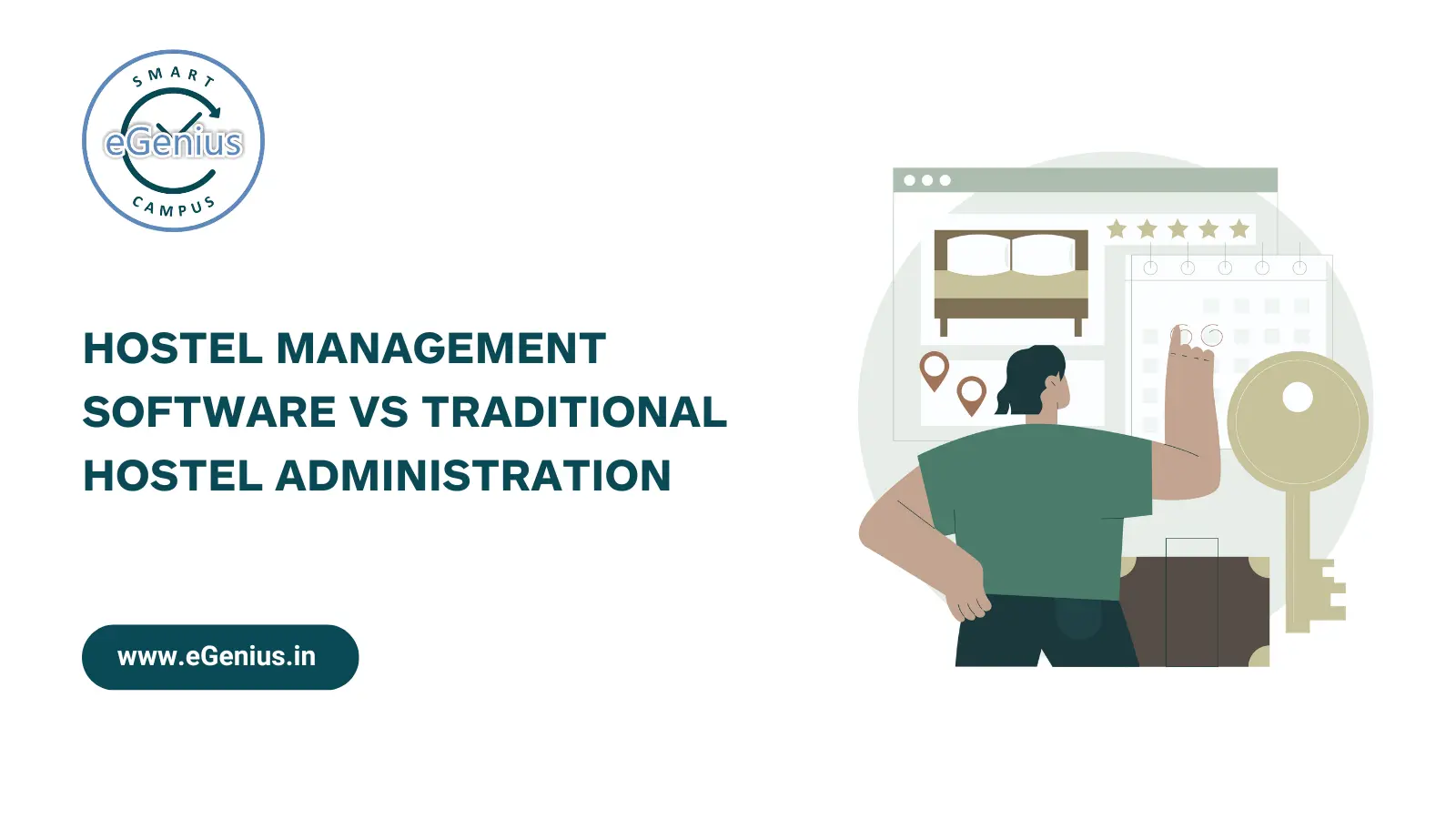In the modern era, efficient management is critical to running successful institutions, including hostels that accommodate students, employees, and residents. The evolution of technology has transformed how administrative tasks are handled, bringing about robust solutions like Hostel Management Software.
Unlike traditional methods that rely on paper records and manual tracking, digital solutions streamline operations, enhance resident satisfaction, and improve transparency. This blog will explore the differences between Hostel Management System and traditional hostel administration, highlighting why the shift toward digital tools is worth considering.
Overview of Traditional Hostel Administration
Traditional hostel administration involves a set of manual practices to manage daily hostel operations. This approach relies heavily on paperwork, from maintaining admission records to tracking room availability, attendance, complaints, and other resident-related data. Traditional administration requires considerable staff involvement, as physical documentation must be updated regularly. The time-consuming nature of these tasks often leads to bottlenecks, delayed responses, and a higher likelihood of human error. Moreover, searching through physical records can be tedious, especially when information needs to be retrieved quickly.
With growing demands for efficiency and accuracy, traditional hostel administration is now being reevaluated, especially as digital solutions become accessible to all scales of institutions.
Introduction to Hostel Management Software
Hostel Management Software is a digital solution designed to streamline hostel operations through automation and centralized data management. This software enables hostel administrators to manage all aspects of hostel administration, from tracking resident information and room allocations to monitoring attendance, resolving complaints, and managing finances. Unlike traditional methods, the Hostel Management System integrates multiple functions into a single platform, enhancing efficiency, accuracy, and accessibility.
This modern tool provides a secure database where resident data is stored, reducing the need for physical files and making data retrieval fast and easy. The Hostel Management System also supports real-time updates, improving coordination among administrative staff, residents, and other stakeholders.
Critical Differences Between Hostel Management Software and Traditional Methods
There are significant differences between traditional hostel administration and Hostel Management Software in terms of functionality, efficiency, and user experience:
- Data Management and Accessibility
- Traditional Method: In traditional administration, data is manually recorded and stored in physical files, limiting accessibility to office hours and specific personnel.
- Hostel Management Software: This software allows for centralized data storage, where records are digitally accessible 24/7, making data retrieval quick and straightforward for authorized users.
- Accuracy and Error Reduction
- Traditional Method: Manual data entry can lead to errors, inconsistencies, and misplaced files. Correcting these issues can be time-consuming and costly.
- Hostel Management Software: Automation reduces human errors, as records are updated digitally, ensuring accuracy and minimizing duplication.
- Operational Efficiency
- Traditional Method: Traditional management is labor-intensive and time-consuming, with routine tasks like attendance tracking, complaint resolution, and report generation taking up a significant amount of time.
- Hostel Management Software: Automated processes in Hostel Management System speed up tasks, freeing staff to focus on more strategic activities.
- Security and Data Privacy
- Traditional Method: Physical files are more susceptible to loss, damage, or unauthorized access, and data privacy can be challenging to enforce.
- Hostel Management Software: Security features such as password protection, role-based access, and encryption safeguard data, ensuring only authorized personnel have access.
- Scalability
- Traditional Method: Expanding or upgrading traditional administration systems can be challenging as the workload grows, demanding additional resources and space.
- Hostel Management Software: Hostel Management Software is highly scalable, easily accommodating increasing numbers of residents and additional functionalities.
Benefits of Switching to Hostel Management Software
Switching to Hostel Management Software offers numerous advantages, transforming how hostels operate and enhancing their overall management experience.
- Enhanced Efficiency and Time Savings
The Hostel Management System automates repetitive tasks, from attendance to room allocation, significantly reducing the time spent on administration. This efficiency allows staff to focus on enhancing the resident experience and addressing issues proactively.
- Improved Resident Experience
Residents benefit from faster responses to queries and complaints, as Hostel Management System provides a centralized complaint management system. It enhances communication between residents and hostel staff, providing a more satisfactory experience.
- Real-Time Data and Analytics
Administrators can generate comprehensive reports on occupancy rates, revenue, and expenses with real-time data. This data-driven approach enables hostel managers to make informed decisions that enhance operational effectiveness.
- Environmentally Friendly
Hostel Management System reduces the need for physical paperwork, promoting an eco-friendlier approach to hostel administration. Digital documentation saves space and contributes to sustainability by reducing paper usage.
- Compliance and Record-Keeping
Hostel Management System ensures that all records are systematically stored, making compliance with legal and regulatory requirements more straightforward. This digital organization also simplifies audits and inspections, as records are easy to retrieve and verify.
Potential Challenges of Implementing Hostel Management Software
While the benefits are substantial, implementing Hostel Management Software may have a few challenges. Understanding these potential hurdles can help institutions better prepare for a smooth transition.
- Initial Setup and Training
Switching from traditional methods to Hostel Management System may require a significant initial investment of time and resources. Training staff members to navigate the software effectively can be time-consuming, and institutions may need to allocate resources for initial onboarding and troubleshooting.
- Cost Considerations
While Hostel Management Software offers long-term benefits, the upfront cost may be a consideration for smaller hostels. However, many providers offer flexible pricing models that cater to various budgets, which can alleviate some cost concerns.
- Data Migration
Migrating data from traditional records to Hostel Management System can be a complex process, especially if the hostel has a large volume of historical data. Careful planning and organization are essential to accurately transferring data without loss.
- Resistance to Change
Staff members accustomed to traditional methods may initially resist the switch to digital systems. Providing adequate training and emphasizing the benefits of Hostel Management Software can help alleviate this resistance.
In today’s digital age, efficient hostel administration is more achievable than ever with tools like Hostel Management Software. Compared to traditional methods, this software offers improved data accuracy, enhanced operational efficiency, and a better experience for residents and staff. While there may be initial challenges in transitioning to Hostel Management System, the long-term advantages far outweigh the hurdles. By embracing technology, hostels can create a more organized, secure, and responsive environment, setting the stage for smooth operations and resident satisfaction.















